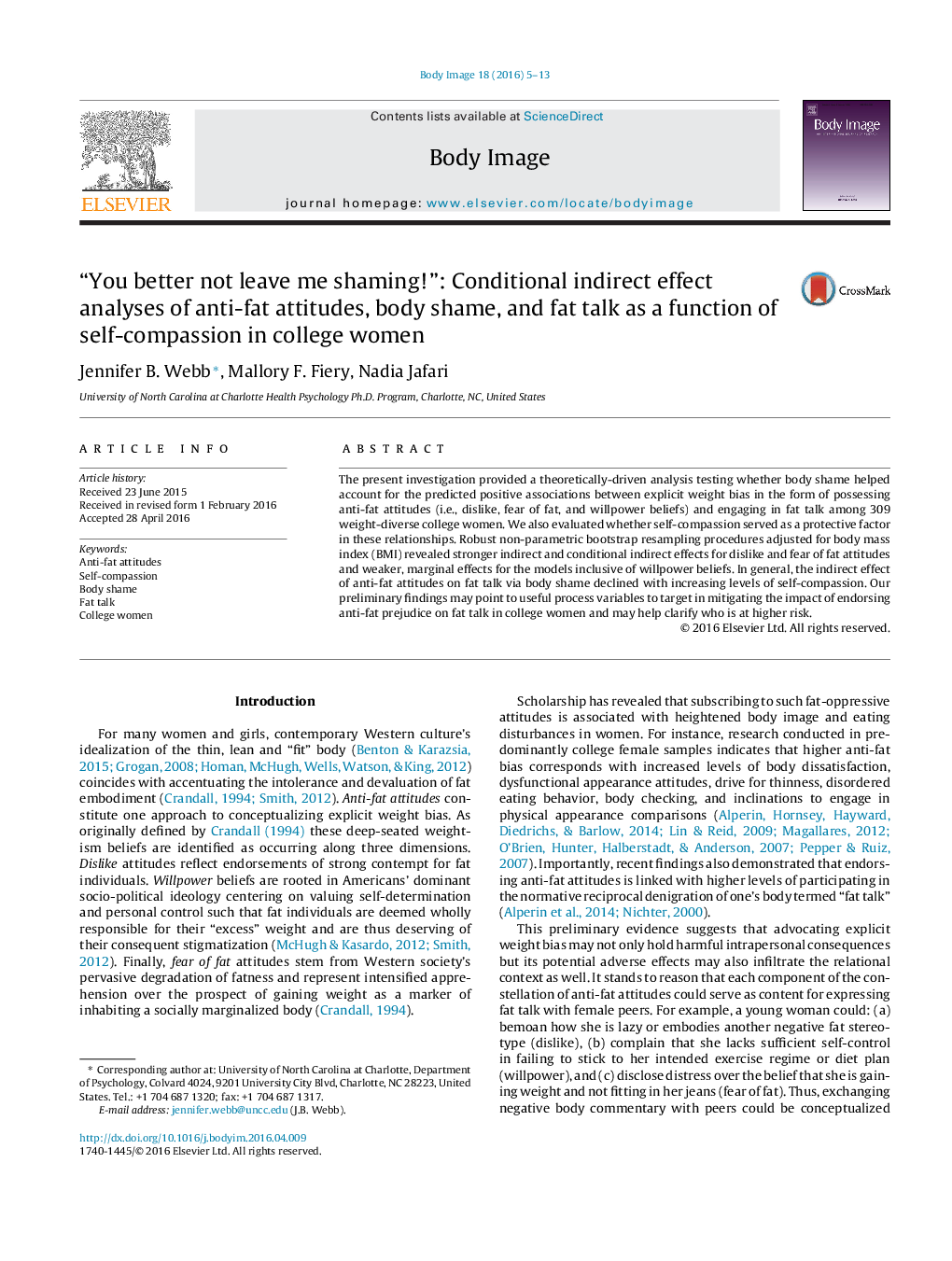| Article ID | Journal | Published Year | Pages | File Type |
|---|---|---|---|---|
| 902694 | Body Image | 2016 | 9 Pages |
•We examined the links between anti-fat attitudes and fat talk in college women.•Body shame helped to partially explain these associations.•Higher self-compassion was shown to attenuate the indirect effect in all models.•Self-compassion specifically weakened the pathway between body shame and fat talk.•Implications for reducing fat stigmatizing attitudes and fat talk are considered.
The present investigation provided a theoretically-driven analysis testing whether body shame helped account for the predicted positive associations between explicit weight bias in the form of possessing anti-fat attitudes (i.e., dislike, fear of fat, and willpower beliefs) and engaging in fat talk among 309 weight-diverse college women. We also evaluated whether self-compassion served as a protective factor in these relationships. Robust non-parametric bootstrap resampling procedures adjusted for body mass index (BMI) revealed stronger indirect and conditional indirect effects for dislike and fear of fat attitudes and weaker, marginal effects for the models inclusive of willpower beliefs. In general, the indirect effect of anti-fat attitudes on fat talk via body shame declined with increasing levels of self-compassion. Our preliminary findings may point to useful process variables to target in mitigating the impact of endorsing anti-fat prejudice on fat talk in college women and may help clarify who is at higher risk.
